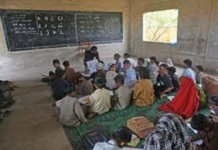This write up triggers from a 1939 quote by an American psychologist and education theorist Edward Thorndike who said that, “It is a great good fortune of the mankind that there is a substantial correlation between intelligence and morality, including good will to one’s fellows” and it goes on further, stating “consequently our superiors in ability are on the average our benefactors and its often safer to trust our interests to them than to ourselves”. Sounds comfy, it sounds cozy and above all sounds drowsy too. Why so? Declare a custodian of your interests and sleep tight. Isn’t that luxurious? A hands off technique, which stands so relevant even now. No sir, there is a catch and you have to fall back to the first part of the quote – the correlation between intelligence and morality.
We need to define those who are the key players in this correlation. There are people with intelligence – the intellectuals, and those entrusting their interests to them – the common people who are bound by the perceived morality of those intellectuals. This simplistic equation, in fact and effect, provides for the framework of the role of intellectuals in societies. Who are those intellectuals? Their division of labor in the society needs to be known. Historically, scholars, teachers, writers, poets, visual artists, fablers, travellers and people with wide ranging business interests carried the baton of intellectualism for their times. With a variety of professions up for the grabs, as means of livelihood in modern era, the list stands updated to include journalists, government functionaries, economists, scientists, doctors and modern day academics, to name a few.
One category intentionally not mentioned i.e. “the judges”, who carry the major brunt of this trust, will be discussed exclusively in succeeding lines.
Given the division, intellectuals are broadly classified into being either traditional or organic ones. Traditional intellectuals have an elitist aura about them and they have a perception of being over and above the dominant groups in a society. They believe that they have a niche on the basis of the kind of field of knowledge they practice e.g. professors, doctors, lawyers, and preachers. On the other hand, organic intellectuals are popularly referred to as “movers and shakers”. They are opinion makers and are entrusted to raise consensus in the societies on issues through their intellect. They can impact cultural change. They influence behaviors, voices of accords and dissents both, have the potency to revolutionize or to counter revolutionize, are mentally fertile and more so, dynamic to the core. Organic intellectuals have a knack for using languages to their advantage, for orating and writing both.
The Marxist conception of intellectuals and their roles is best described by the statement: “The class which has the means of material production at its disposal has control at the same time over the means of mental production at its disposal.” The mere mention of material production also sneaks into this equation the variable morality. Carrying the baton of peoples interests, which has been entrusted by the people themselves, by default render intellectuals accountable for their mental production, the intellectual honesty per se.
Morality in turn has a direct link to justice prevailing in a society because justice is akin to living within the society and morality is more based on ones own beliefs and thus can be likened to living with oneself. It is an individual trait, which sums up to socially correct and acceptable behaviors. If one cannot live morally honest with oneself, then living within the society, justice is out of question. Amongst the intellectuals, irrespective of type they are, justice is entrusted to be dispensed by none other, but “judges” in a society. This explains why judges were left out of the list of intellectuals described above. The famous saying of Hazrat Ali Ibne Abu Talib (AS) implying that tyranny can endure, but injustice cannot last, highlights the importance of justice in a society and of those who are supposed to dispense it. Only intellectuals standing on high moral ground can ensure that peoples’ interests are safeguarded.
In recognition of their intelligence and by entrusting the interests to them, societies look up to intellectuals. On the basis of their mental/intellectual production, when influenced by the social, political or economic context, a fissure between themselves and people can appear, which if not fixed urgently can drift towards hostility. The onus of this lies on intellectuals more than the commoners. The modern day definition of an intellectual links them to being highly educated, which can be rendered immaterial if they are unable to question the status quo or challenge doctrines. A human organization (aka society), which is humane, tolerant, and above all, just, can only be provisioned by intellect and morality – the delivering duo.








Comments are closed.